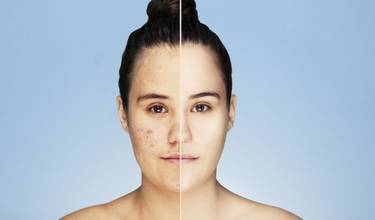Acne is not desirable, yet it affects a lot of younger people. It not only causes physical genes but also affects psychologically. It is a hereditary skin disease caused by inflammation in and around the sebaceous glands of the skin, which then causes different symptoms such as blackheads, red buds, inflamed pustules and occasionally large nodules. These symptoms make you itch, scratch, squeeze and destroy the skin in the affected area in an attempt to get rid of the bud in the skin. It often feels relieving against the pain associated with buds under the skin, but it may result in wounds and permanent scars that often are very visible as they usually occur on the face. For many years, dermatologists have noticed that the skin of people with acne seems to age slower than with those who have not suffered from any form of acne throughout their life. The reason why has remained unknown until now.
The reason behind younger skin following acne
Researchers have now uncovered the microscopic cause of this observation, and this is found on ‘telomere-level’, which is parts of our DNA. They sit on the end of the chromosomes (the genome) in the cell nucleus. These are normally used to measure the biological age of cells, as telomeres are shortened each time the cell divides. This means that they become shorter throughout the years. In some people, telomeres are shortened faster than in other people, which makes them look older, faster.
The researchers took blood and skin samples from over 1200 twins and found that the twins suffering from acne were significantly more likely to have longer telomeres, which did not only make their skin look younger on the surface but also on a cellular level. According to the study with twins, genetically based acne is often cyclic, which means it follows a hormone cycle and is difficult to deal with. The genes associated with hereditary acne seem to provide a protective anti-aging effect. However, this does not seem to be the case for people suffering from environmentally determined acne – those whose acne outbreaks are irregular, associated with poor hygiene or a reaction to makeup and other forms of external triggering factors.
Does this mean I should not treat my acne?
This does not mean that you should avoid treating your acne if suffering from it. It is not a swap deal, where those with clean skin get wrinkles and those with acne get young skin. If you have the gene, you will have the anti-aging effects as well, regardless of the degree of acne. If you cleanse your skin thoroughly, thereby fighting the outbreaks, you can have the best of both worlds.
If you suffer from acne, it is recommended that you seek advice from your doctor as there are many remedies that can reduce the symptoms. So, as you mourn your current impure skin, you can rejoice over the fact that you have younger skin than most others!
Sources:








